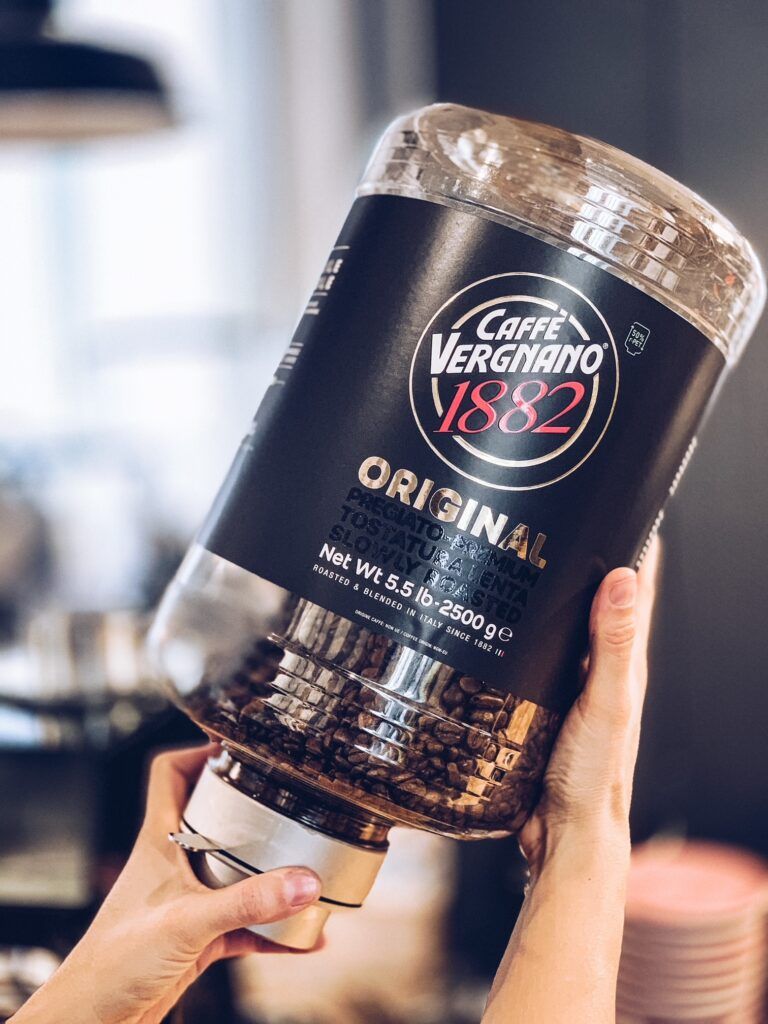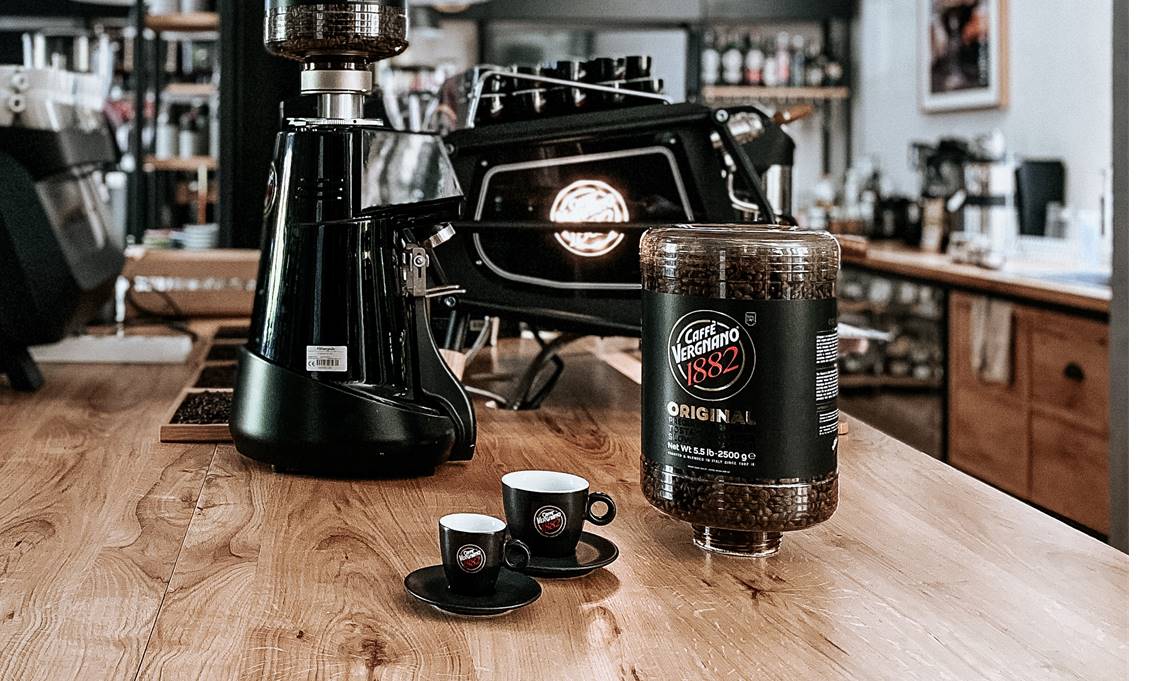Even in the world of coffee, the environmental issue is becoming increasingly central and the desire to make espresso at the bar more sustainable is a priority. Many roasting companies spend their energies and resources on a daily basis in search of packaging with a lower environmental impact.
In domestic consumption, the desire to reduce the impact of waste from the beloved cup of coffee is now well known. This is confirmed by the preference for compostable capsules that can be recovered in the organic collection and bags that can be placed in plastic.
What happens at cafés? Aluminum, plastic, mixed materials: coffee for professionals is packaged in different ways, all thought of to preserve coffee beans in the best possible way and for as long as possible. But coffee is even better if it manages to have a second life.
And this is how, starting from a careful study on the recycling of plastic bottles, we managed to develop pf game-changing container for professionals of the coffee industry.
First of all, the material used to produce it is an absolute innovation in the market. PET (polyethylene terephthalate) is a plastic suitable for food contact because it is light, resistant, and an excellent barrier against humidity. Above all, it is 100% recyclable and can be recycled over and over again.
Secondly, the new pack that Caffè Vergnano has designed for its coffee beans dedicated to the HoReCa world, is made of 50% virgin PET, and 50% recycled R-PET.

R-Pet, from water bottles to coffee, the second life of raw materials
Recycling is among the best solutions to reduce the environmental impact and R-Pet derives from the recycling of plastic water bottles. These, properly selected, sanitized, and reduced to flakes, give life to the new coffee packaging.
The optimal preservation of the coffee is guaranteed, without compromises or limitations: the new material has in fact the same performance as the container made of 100% virgin plastic.
The coffee pack thus becomes a real resource that cuts in half the use of plastic from non-renewable sources and reduces CO2 emissions in the production phase.
The choice that makes the difference
More and more baristas, restaurant owners, and entrepreneurs try to make coffee part of a change that looks to the future, and that provides benefits in terms of environmental impact, distinctiveness and competitiveness.
Caring for the end of life of products goes hand in hand with a new sensitivity shared by both professionals and customers, who are increasingly careful and inclined to make informed purchases.
Find out more about the new recycled packaging that makes coffee at the bar more sustainable.





